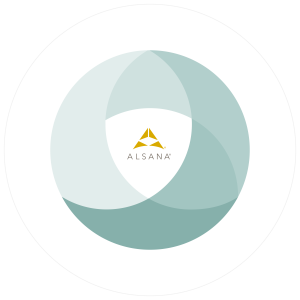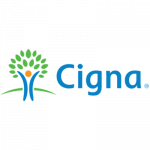Other Specified Feeding or Eating Disorder (OSFED) Treatment
OSFED (Other Specified Feeding or Eating Disorder), previously called EDNOS (Eating Disorder Not Otherwise Specified), is characterized by mixed, complex symptoms. While less understood, OSFED is not less serious or less deserving of treatment than any other eating or feeding disorder.
Reach out to us today!
What is OSFED?
OSFED, or other specified feeding or eating disorder, is a diagnostic category for eating disturbances (such as atypical anorexia) in individuals whose symptoms do not meet the criteria for another eating disorder. OSFED is a subclinical DSM-5 category that, along with unspecified feeding or eating disorder (UFED), replaces the category formerly called eating disorder not otherwise specified (EDNOS) in the DSM-IV-TR.
OSFED is no less serious than other eating disorders and is the most common eating disorder encountered in outpatient settings.
Types of OSFED
Atypical Anorexia Nervosa: This involves all the typical symptoms of anorexia nervosa, such as restricted eating and intense fear of gaining weight, but without the individual being underweight.
Bulimia Nervosa (of low frequency and/or limited duration): This includes episodes of binge eating and inappropriate compensatory behaviors (like self-induced vomiting) but occurs less frequently or over a shorter period than would be required for the diagnosis of bulimia nervosa.
Binge Eating Disorder (of low frequency and/or limited duration): This involves recurrent episodes of binge eating (eating large amounts of food with a sense of lack of control) but happens less frequently or for a shorter duration than the criteria for binge eating disorder.
Purging Disorder: Engaging in purging behaviors, such as vomiting, misuse of laxatives, diuretics, or enemas, without binge eating can be categorized as OSFED.
Night Eating Syndrome: Repeated episodes of night eating, either eating after awakening from sleep or by excessive food consumption after the evening meal could also be categorized as OSFED.
OSFED Signs and Symptoms
- Fatigue
- Dizziness
- Headaches
- Constipation and stomach aches
- Irregular heart rhythms
- Fainting spells
- Dental cavities
- Dry skin
- Thinning hair or balding patches
- Demonstrate behaviors and attitudes showing weight loss, dieting, and control of food as primary concerns
- Feeling overweight despite weight loss
- Denies feeling hungry
- Evidence of purging behaviors such as frequent trips to the bathroom after meals and signs of vomiting.
- Development of food rituals (e.g. eats only a particular food or food group)
- Obsession with food cleanliness or exercise is present in individuals with OSFED
- Withdraws from usual social engagements and activities can be seen in individuals with OSFED
- Abdominal pain or digestive issues
- Negative body image and low self-esteem
- Evidence of binge eating can be present in individuals with OSFED
- Loss of control when eating including impulsive or irregular eating habits
OSFED Treatment Programs
Alsana’s treatment programs offer a compassionate and supportive environment for adults battling eating disorders such as OSFED, along with any co-occurring mental health challenges. Our approach is deeply empathetic and understanding, recognizing the unique and personal journey each individual embarks on in their path toward recovery.
Delivered by a dedicated, multidisciplinary team of healthcare professionals, our treatment for OSFED is comprehensive and client-focused. This team is committed to being by your side, providing support and guidance throughout your recovery journey. We understand that the path to overcoming OSFED is not linear, and our team is adept at adapting to your evolving needs.
Our OSFED and eating disorder treatment programs include Residential and PHP/IOP options, offering flexible and personalized treatment solutions. Additionally, for those seeking a less-structured OSFED treatment environment, our Virtual PHP/IOP programs are available, specifically designed to empower clients in their own environments, fostering the development and refinement of skills essential for recovery from OSFED.

Whole-Person Approach to OSFED Treatment
At Alsana, we are dedicated to providing comprehensive care for those struggling with OSFED, focusing on whole-person healing and recovery. Our OSFED and eating disorder treatment programs integrate a HAES philosophy and adopt weight-neutral goals, ensuring that every aspect of your well-being is addressed.
Our approach to OSFED treatment is rooted in reducing shame and fostering self-compassion. We understand that recovery is not just about changing eating habits; it’s about nurturing a healthier relationship with oneself and one’s body.

All of our programming is built on the foundation of our Adaptive Care Model®, which prescribes an individualized, whole-person care approach for clients recovering from eating disorders and co-occurring conditions. This evidence-based method facilitates multidimensional healing through medical, therapeutic, and nutritional care, as well as through relational and movement support. This approach to eating disorder treatment helps clients hone the recovery skills needed to sustain recovery post-treatment.

OSFED Treatment Team
Treating OSFED clients requires a collaborative, multi-disciplinary approach. Essential team members include:
- Registered dietitian with experience with eating disorders
- Psychotherapist with experience with eating disorders
- Nurse
- Medical doctor
- Psychiatrist
Additional self-care behaviors to promote health management including but are not limited to: sleep and dental hygiene, hydration, and stress management.

OSFED Nutritional Care
During the assessment process, Alsana dietitians gain a thorough understanding of clients’ eating and nourishment challenges and work with our eating disorder-informed culinary team to create custom meal plans that meet OSFED clients where they are in recovery.
Dietitians work closely with Alsana’s therapeutic and medical teams to assist clients in healing both their brain and body, while also fostering a healthy relationship with food. In the individual and group settings, the Alsana team collaborates with each client to work toward making food choices that feel good and fuel their body without internal judgment.
Our goal is to create food neutrality by taking out the moral judgment of food and focusing on nourishment, flexibility, and pleasure in the nutritional healing process. Learn More About Alsana’s Approach to Nutritional Care ⟶
Alsana’s OSFED Nutrition Program
- Weekly nutrition psychoeducation group
- Nutrition education
- Hands-on experientials
- Kitchen skills
- Individualized meal plans
Health Consequences of OSFED
- Gastrointestinal issues (including damage to the esophagus and stomach)
- Constipation and diarrhea
- Kidney damage
- Weakened bones (osteoporosis)
- Slowed growth (in young people)
- Infertility in men and women
- Heart conditions, including irregular heart rate and low blood pressure.
OSFED - Statistics
- Prevalence: The one-year prevalence of OSFED is 1.18% in females and .27% for males.
- Mortality: Approximately 33% of the deaths attributed to eating disorders can be associated with OSFED, higher than any other type of eating disorder.
- Gender Disparity: While OSFED affects both males and females, it represents 39.5% of eating disorder cases among males, and 44.2% of cases among females .
- Co-occurring Conditions: OSFED often coexists with other mental health conditions, necessitating a comprehensive approach to treatment.
Paying for OSFED Treatment – Insurance Coverage
Alsana is a preferred in-network provider for all major insurance companies.











OSFED Treatment FAQs
OSFED, or Other Specified Feeding or Eating Disorders, is a category of eating disorders that encompasses a wide range of symptoms that do not fully meet the criteria for other eating disorders like anorexia nervosa, bulimia nervosa, or binge eating disorder. OSFED includes conditions such as atypical anorexia nervosa, bulimia nervosa (with less frequent behaviors), binge eating disorder (with less frequent occurrences), purging disorder, and night eating syndrome.
Treatment for OSFED often includes a combination of psychotherapy, nutritional education, and sometimes medication. Therapies like Cognitive Behavioral Therapy (CBT) are commonly used. At Alsana, we tailor our treatment plans to each individual’s needs, focusing on holistic recovery.
Yes, there are flexible treatment options available, including day treatment, intensive outpatient treatment, and virtual programs, that allow you to receive treatment while continuing with your daily life.
Many insurance plans cover treatment for eating disorders, including OSFED. We recommend contacting your insurance provider for specific coverage details. Our staff can also assist with understanding and navigating insurance questions. You can check your coverage at alsana.com/insurance.
At Alsana, we offer a client-centered approach, integrating physical, mental, and emotional health into our treatment plans. Our Adaptive Care Model® provides a comprehensive and personalized treatment experience.
Starting treatment is a simple process. You can contact us through our 24/7 live chat or call us directly to schedule an appointment for an initial consultation to discuss your needs and treatment options. Visit alsana.com/admissions for more info.
Start the road to recovery with Alsana.








